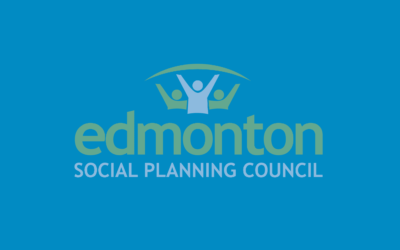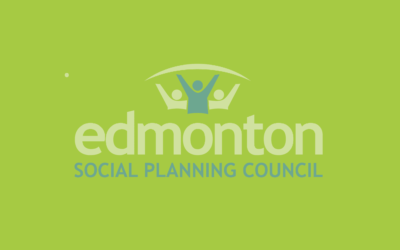Blog: Experiences of Grief: Intersectional Healing

Grief is a response to profound loss which comes in many forms and affects people differently. Resources, wellness practice and support networks are important ways to facilitate healing from this experience, especially as it pertains to marginalized loss.
By Amethyst Zapisocky, ESPC Volunteer
Grief is the experience of and response to loss. (1) Although typically associated with the death of a loved one, it can occur after any loss. (1) (2) It can take many forms, making it difficult to pinpoint because grief varies across persons, situations and cultures. Some examples of specific subforms are abrupt (sudden/unexpected), climate (environmental anxieties), and anticipatory (loss about to happen) grief. (3) Major systemic forms of grief are demonstrated through collective grief (grief typically found in large-scale tragedies or under human rights violations) and disenfranchised grief (when grief is stigmatized or disregarded by others). (3) Connected to this latter form is disenfranchised guilt and stress, whereby an individual feels frustrated yet unentitled to grieve because it has been socially disregarded. (4)
On the broadest level, grief can be separated into two categories: uncomplicated and complicated. (2) The former follows the healthiest progression where the person’s grieving journey finalizes with acceptance and/or peace. Uncomplicated grief rarely needs medical intervention, as it is healthy to allow the grieving process to play out with appropriate wellness and support systems in place. (2) Conversely, complicated grief is prolonged suffering, where the individual is perpetually yearning and in distress from their loss. (2) In this case, targeted therapies can be important for the griever’s well-being. (2)
There are many physical, emotional, and cognitive symptoms attached to grief, including isolation, eating and/or sleep disturbances, distress, shock, denial, anxiety, and (when extreme) substance abuse and/or suicidality. (1) (2) (5) (6) Many wellness techniques can be beneficial for relieving grief whenever it arises, including self-care and connecting with others. (1)
Disenfranchised and Collective Grief
Collective grief is a result of large-scale tragedies, disasters or loss that affect all members of a population. (7) Examples include the devastating Fort MacMurray fire in 2016, (8) as well as Edmonton communities forming from widespread eco-grief. (9) Such events can negatively impact community, interpersonal and intrapersonal functioning. (7) In this case, grief, confusion, disrupted living, safety fears, and disenfranchisement are common. (7) Furthermore, social justice implications are involved in collectivized grief because the pain of marginalized populations is more likely to be stigmatized, undermined and/or unacknowledged. (7) (10) The impacted communities are less likely to receive the support or resources they need for healing/rebuilding. (10) In some cases, the grievers are viewed as at fault for their circumstances and are, subsequently, underserved. (10)
Grief from and alongside drug addiction or overdose is frequently invalidated, despite the ongoing crisis and cycle of guilt, trauma, and loss associated with those affected. (11) (12) Despite efforts such as Edmonton’s Overdose Awareness Day (first held on August 31, 2022), those struggling with addiction have difficulty accessing adequate treatments and resources. (11)
Indigenous communities face disproportionately high levels of loss, which is further complicated by stigmatization, difficulty accessing resources (such as rehabilitation centers), and a need for thorough investigations/justice for violence against Indigenous Peoples (for example, Missing and Murdered Indigenous Women and Girls). (13) (14) A recent workshop intended for Inuvialuit and Gwich’in youth was hosted by the Western Arctic Youth Collective in Inuvik; it targeted mental wellness by establishing an Indigenous safe space for discussion and activities on grief and promoting hope which yielded promising results for healing. (15) (16)
Collective and disenfranchised grief are intertwined. Outside observers can also experience collective grief as a result of being exposed to the loss of others. (7) As such, adequate and honest exposure to the loss of marginalized communities is imperative for understanding, destigmatization, and inclusive efforts for healing. (7) Bearing witness to grief is a powerful way to support grieving communities. The pain that loss brings needs to be attended to through acknowledgement, support, and resources, with systemic gaps needing to be filled in order to help every griever.
RECOVER’s Soloss Project
Albertans are not immune to grief. RECOVER’s Soloss project targets disenfranchised grief in street-involved Edmontonians. (17) Soloss conducted an ethnographic study which found that profound grief was pervasive in this population, which has been minimized and ignored (disenfranchised) producing further stigmatization, mental illness, substance use, isolation, and eviction. (17) Subsequently, Soloss has become a community care intervention which employs diverse Losstenders (trained recruits who connect with grieving Edmontonians) to facilitate intercultural healing through art and bearing witness to loss. (17) This has not only helped marginalized persons receive important support for their bereavement but also informs fellow Edmontonians to understand this suffering. (17) The project has helped many grieving populations including Indigenous Peoples, those in addiction recovery, refugees and immigrants, and social service workers through acknowledgement and holistic therapies. (17) Overall, this intervention seeks to fill the gap in resources available to equity seeking grievers in Edmonton by establishing connections and integrative practices to facilitate peace. (17)
Establishing Wellness in The Face of Grief
There are many ways to promote healing when grief arises. Different resources and wellness practices work for differing persons and circumstances, but some tips for healing are as follows:
- Connect with loved ones and/or a support network (1)
- Practice self-care/self-loving strategies (1) (6)
- Avoid trying to rush the healing process (1)
- Plan ahead for triggering holidays or occasions which may reignite grief (1)
- Be honest about your feelings and acknowledge your loss (1) (6)
- Allow for life to change while still remembering and honouring your loss (1) (7)
Connecting with resources can also be beneficial, with many targeted programs/services available to help. Edmonton’s Grief and Trauma Healing Centre is available for therapeutic aid. Alberta Health Services lists many services for grief available here. As previously described, Soloss is also open for disenfranchised grievers, with Losstenders available to be booked here.
Amethyst Zapisocky is working towards a BA in psychology at the University of Alberta. A fourth-year undergraduate student, her career focus is on research and social development. She values equity, learning, and philanthropy. Personally, Amethyst enjoys statistics, mindfulness and jazz music.
References
- Canadian Mental Health Association (n.d.). Grieving. CMHA Alberta Division. Retrieved January 3, 2023, from https://alberta.cmha.ca/documents/grieving/
- Zisook, S., & Shear, K. (2009). Grief and bereavement: What psychiatrists need to know. World Psychiatry, 8(2), 67–74. https://doi.org/10.1002/j.2051-5545.2009.tb00217.x
- Gillette, H. (2022, December 19). 9 different types of grief. PsychCentral. Retrieved January 3, 2023, from https://psychcentral.com/health/types-of-grief
- Degges-White, S. (2021, March 30). Disenfranchised grief: Mourning events that never were. Psychology Today. Retrieved January 3, 2023, from https://www.psychologytoday.com/ca/blog/lifetime-connections/202103/disenfranchised-grief-mourning-events-never-were
- The Grief and Trauma Healing Centre. (n.d.). Your journey to healing. Retrieved January 3, 2023, from https://www.healmyheart.ca/
- National Center for Chronic Disease Prevention and Health Promotion. (2022, September 6). Grief and loss. Centers for Disease Control and Prevention. Retrieved January 3, 2023, from https://www.cdc.gov/mentalhealth/stress-coping/grief-loss/index.html
- Kropf, N. P., & Jones, B. L. (2014). When public tragedies happen: Community practice approaches in grief, loss, and recovery. Journal of Community Practice, 22(3), 281-298. https://doi.org/10.1080/10705422.2014.929539
- Baretta,, G. (2016, June 1). The fire is out, but the grieving continues. The Grief and Trauma Healing Centre. Retrieved January 3, 2023, from https://www.healmyheart.ca/blog/fire-grieving-continues
- Wdowczyk, A. (2022, August 29). Edmonton climate activists use their ‘eco-grief’ as a tool for building communities. CBC. https://www.cbc.ca/news/canada/edmonton/edmonton-climate-activists-use-their-eco-grief-as-a-tool-for-building-communities-1.6562046
- Bordere, T. C. (2016). Social justice conceptualizations in grief and loss. In D.L. Harris, R.A. Neimeyer & T.C. Bordere (Eds.), Handbook of social justice in loss and grief (pp. 9-20). Routledge. https://doi.org/10.4324/9781315659756
- Junker, A. (2022, August 30). Edmonton and area to mark International Overdose Awareness Day on Wednesday. Edmonton Journal. https://edmontonjournal.com/news/local-news/edmonton-and-area-to-mark-international-overdose-awareness-day-on-wednesday
- Giacomucci, S. (2020). Addiction, traumatic loss, and guilt: A case study resolving grief through psychodrama and sociometric connections. The Arts in Psychotherapy, 67, 1-6. https://doi.org/10.1016/j.aip.2019.101627
- Stewart, C. (2022, September 28). ‘Nothing is being done’: Services desperately needed in Maskwacis says grieving father. APTN News. https://www.aptnnews.ca/national-news/grieving-father-services-drugs-murder-samson-cree-nation/
- Liewicki, N. (2022, December 4). Grief in Long Plain First Nation after 2 women from Manitoba community identified as homicide victims. CBC. https://www.cbc.ca/news/canada/manitoba/sadness-grief-long-plain-first-nation-chief-1.6673225
- ‘My pain had a place’: Youth mental health event in Inuvik focuses on grief and loss. (2022, December 17). CBC News. https://www.cbc.ca/news/canada/north/inuvik-youth-mental-health-gathering-1.6687303
- Western Arctic Youth Collective. (2022, November 18). WAYC is hosting a Youth Mental Wellness Gathering in Inuvik Dec 9-11, 2022 for youth ages 18-30. During [Image attached] [Status update]. Facebook. https://www.facebook.com/waycwaycwayc/photos/a.117064356752069/693637732428059
- RECOVER. (n.d.). Soloss. Urban Wellness Edmonton. Retrieved January 3, 2023, from https://www.urbanwellnessedmonton.com/soloss


